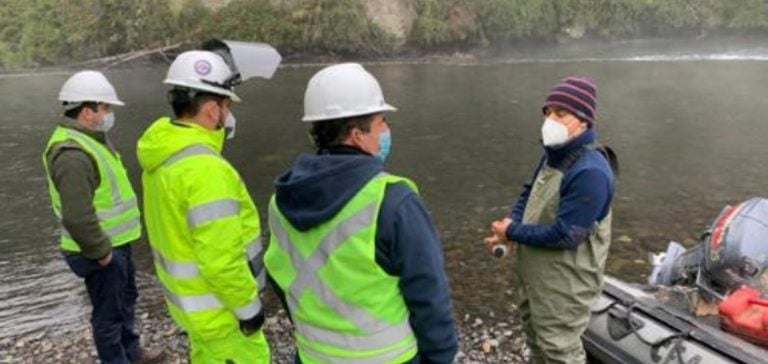The Los Lagos hydroelectric project, developed by Statkraft, is a key element in Chile’s energy strategy.
Located in the eponymous region, this 52 MW project uses run-of-river technology, whereby energy is generated by exploiting the river’s natural flow without the need for a reservoir.
This approach is supposed to minimize the major environmental impacts often associated with dam construction.
However, since 2019, the project has met with objections from indigenous Mapuche communities, concerned about the consequences of hydroelectric development on their ancestral territory. These concerns led to the complaint lodged in 2023 with the Norwegian National Contact Point for Responsible Business Conduct, due to allegations of non-compliance with OECD guidelines.
The mediation process that followed aims to find a solution acceptable to all parties.
Dialogue with local communities
Despite these objections, Statkraft claims to have been in constant dialogue with local communities since the project was acquired.
More than 500 meetings have been held with various local stakeholders in an attempt to adapt the project to the specific needs of the region.
This approach has enabled some progress to be made, but discussions with certain groups, particularly the Mapuche, remain tense.
The National Contact Point for Responsible Business in Norway therefore felt it necessary to intervene, facilitating mediation between Statkraft and the indigenous communities concerned.
This mediation is crucial, not only to defuse social tensions, but also to ensure that international standards of human rights and respect for local communities are respected.
Energy and social impact
The Los Lagos project plays a strategic role in Chile’s energy transition, as the country strives to diversify its energy sources and reduce its dependence on fossil fuels.
Hydroelectric generation, in particular run-of-river power plants, is seen as a solution for guaranteeing a stable, renewable supply of electricity.
However, this type of project poses major challenges in terms of social acceptability, as demonstrated by the opposition of the Mapuche people.
The need to reconcile the production of renewable energy with respect for the territorial rights of indigenous communities is a central issue in the realization of this project.
Statkraft has shown a certain flexibility in its approach by abandoning a neighboring hydroelectric project, the Osorno, after consulting local populations.
This decision freed up the concession originally planned and returned it to the Chilean authorities, reinforcing the company’s image in terms of respect for indigenous rights.
Economic and political issues
Chile’s energy sector is undergoing a major transformation, with a strong push towards renewable energies.
This transition is taking place in a context where the country’s growing energy needs must be met while reducing its carbon footprint.
The Los Lagos project is part of this dynamic, but its implementation raises questions about how to reconcile economic development and territorial issues.
For its part, the Chilean government has granted the necessary authorizations for the construction of this plant.
This decision shows that the authorities believe that the benefits of hydroelectric production for the stability of the national power grid outweigh the social and environmental concerns raised by local communities.
Yet Chile must also respond to growing public expectations in terms of respect for the rights of indigenous communities, making this type of project a battleground between economic and social objectives.
Outlook for the Los Lagos project
As the Los Lagos project nears completion, Statkraft will need to ensure that its commitments to human rights and social dialogue are respected.
The ongoing mediation process with indigenous groups could be decisive for the future of the project and its local acceptability.
In addition, Statkraft’s ability to maintain good relations with communities will be an indicator of its ability to carry out other projects in the region, and even beyond.
The experience of the Osorno project shows that the company is capable of adapting to local needs, foregoing projects when the social or environmental impacts are deemed too great.
However, each project presents its own unique challenges, and in the case of Los Lagos, it’s all about finding a compromise between renewable energy production, the protection of indigenous rights and the demands of Chile’s economic development.






















